

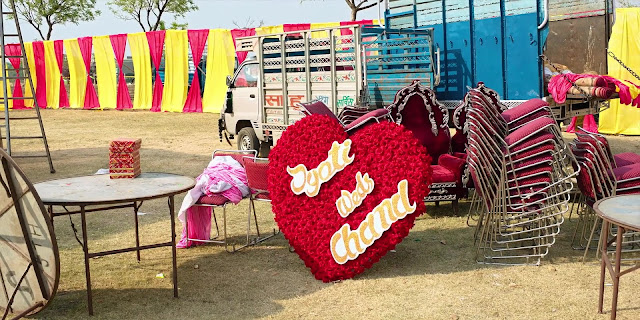

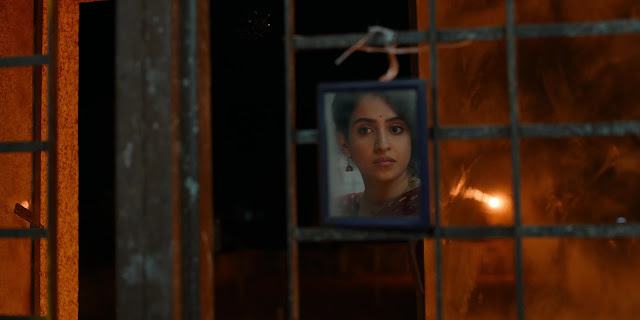



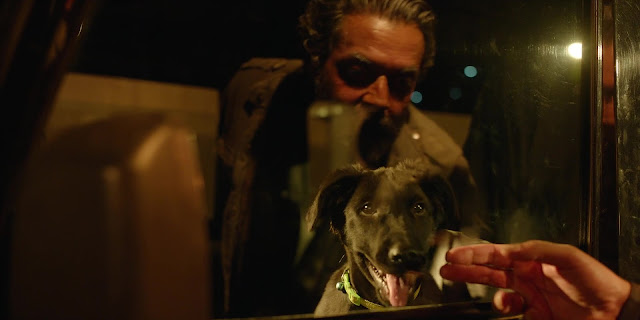

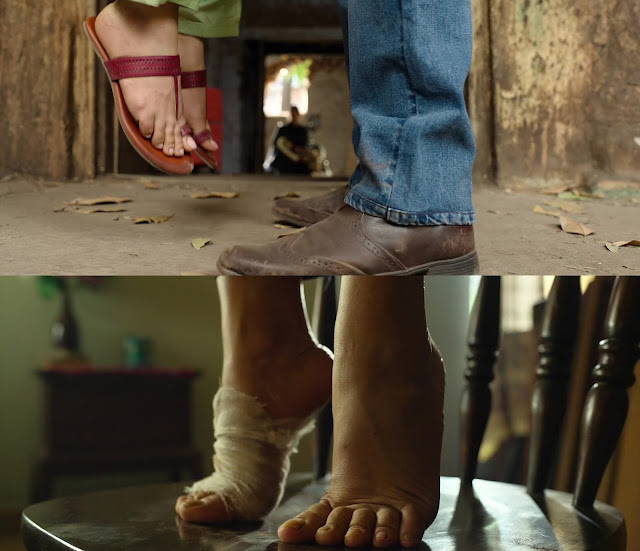
In Love Hostel, the children are used as a motif where they are often present in violent situations but unafraid of the bloodbath in front of them. When Dagar goes to kill the lawyer who helped Jyoti get married, an irritated kid playing video games and wearing headphones opens the door. The kid's entire family is killed, and he is simply busy playing. Later, during the shootout at the hotel where Ashu delivers meat, a young girl, also wearing headphones, sits on the aisles. After the gun fights, she tells Ashu that he has blood on him. Later, in a similar scene, a young kid tells Dagar that he has blood on him when Dagar saunters into a wedding and starts indiscriminately shooting at people. And, the terrifying character in the film is another young kid—Rakesh (Yudhvir Ahlawat), Jyoti's brother. Think of Sandhya's brother from Dum Laga Ke Haisha, who was shown for comic effect. But add violence and rage and multiply by hundred times to get Rakesh. He is the one who violently hits Jyoti with a stick when he finds out about her affair with Ashu. He is the one who reveals Ashu's Muslim identity to her family. He is the one who kills Ashu in the end. He had this rage that he was willing to kill his father for standing up to his grandmother. It is a reminder of how children are not always beacons of innocence, and it is they who ultimately grow up to become perpetrators of violence. In a telling moment, when police inspector Sushil Tripathi (Raj Arun) comes looking for Dagar at Kamala Dilawar's place, she tells him any of the kids playing around her could be Dagar, so which Dagar is he looking for?
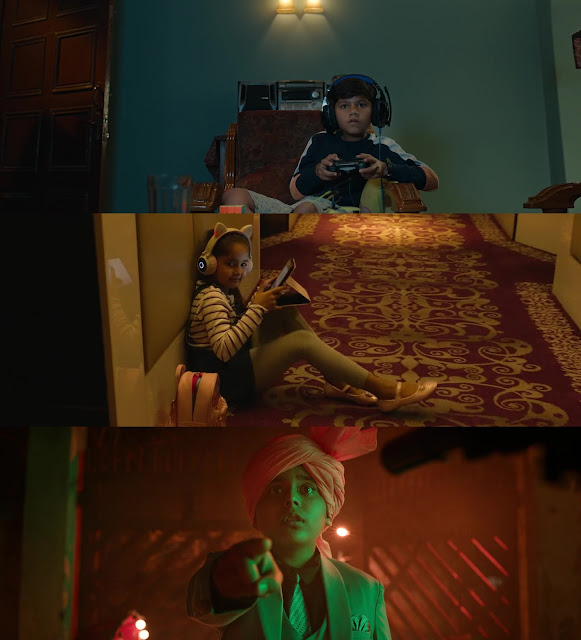

Love Hostel is also a film that depicts the manifestation of male depression in different forms. The men in the film are grieving and are advised to take help. Two characters—Sushil Tripathi and Dagar—go through similar trauma. Both these men lost their brothers. Sushil's younger brother performed self-immolation after he married another girl from a different religion. Maybe it is why he is kind to Ashu, as he sees his brother in him. Dagar's elder brother also took his own life after his daughter eloped with a man from another religion. Both Sushil and Dagar suffer from depression but refuse to accept help. Sushil has nightmares even today, prompting his wife to urge him to seek therapy and let it out. "Dil ki baat dabakar rakhna jhooth hi hai," she tells him. He is taking (sleeping) pills, but he dismisses the suggestion. On the other hand, Dagar takes to violence to deal with his trauma. He is called a bimar and is told by people that he needs to get treated. He is falsely living under the belief that he is a social reformer.

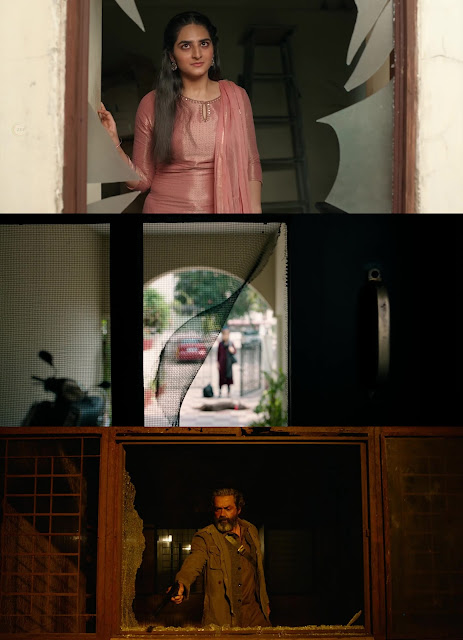


No comments:
Post a Comment
Post a comment